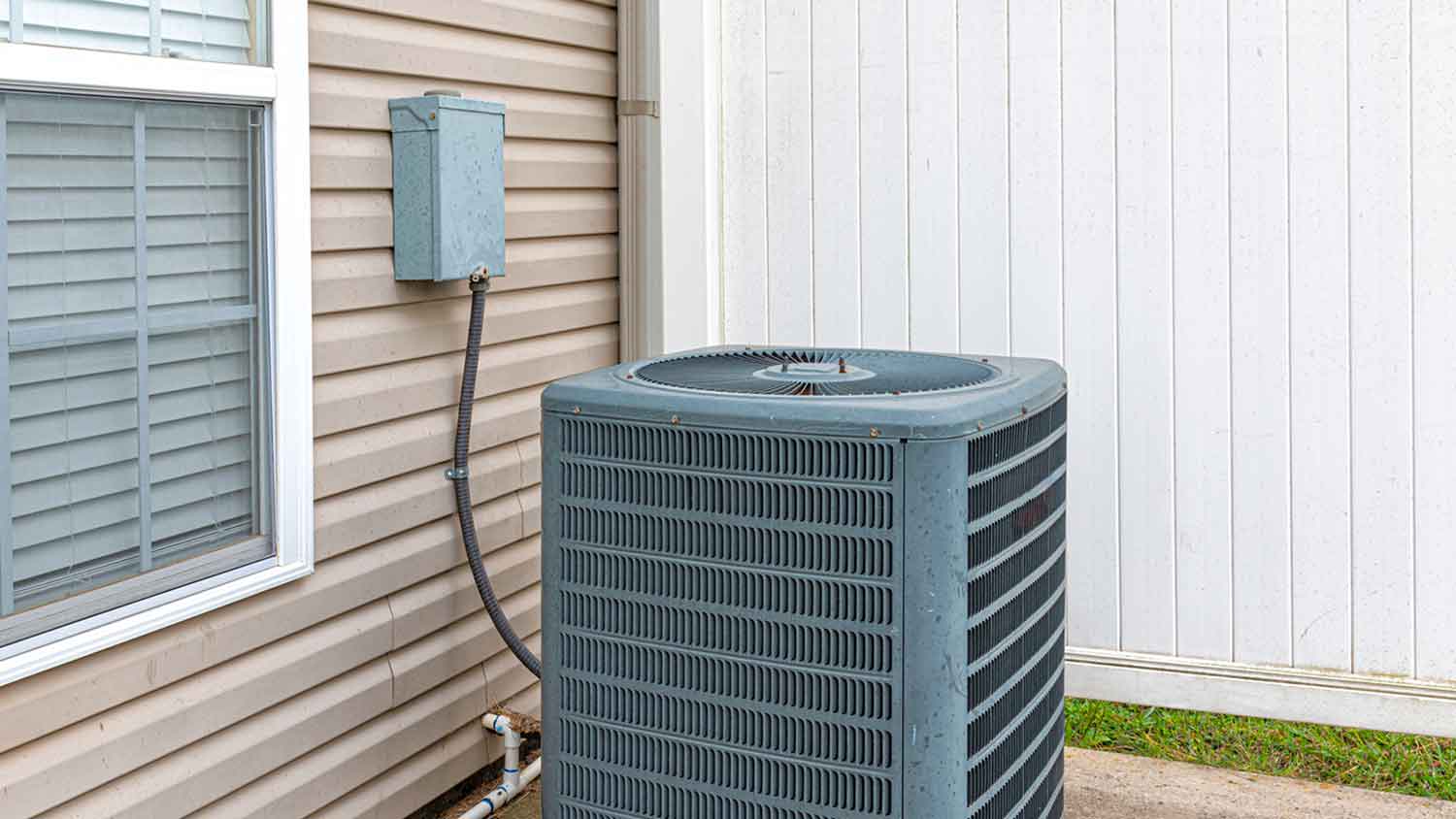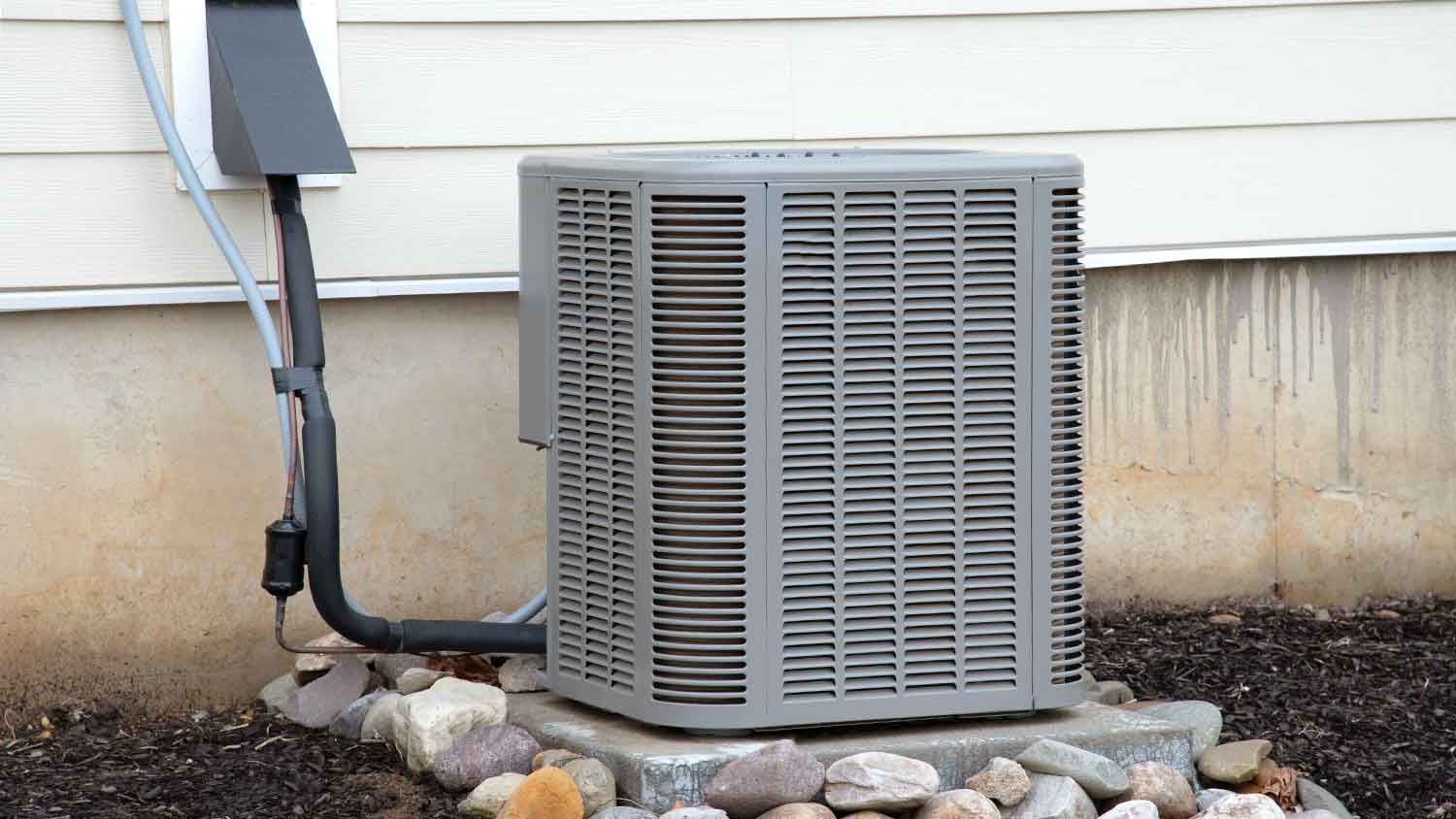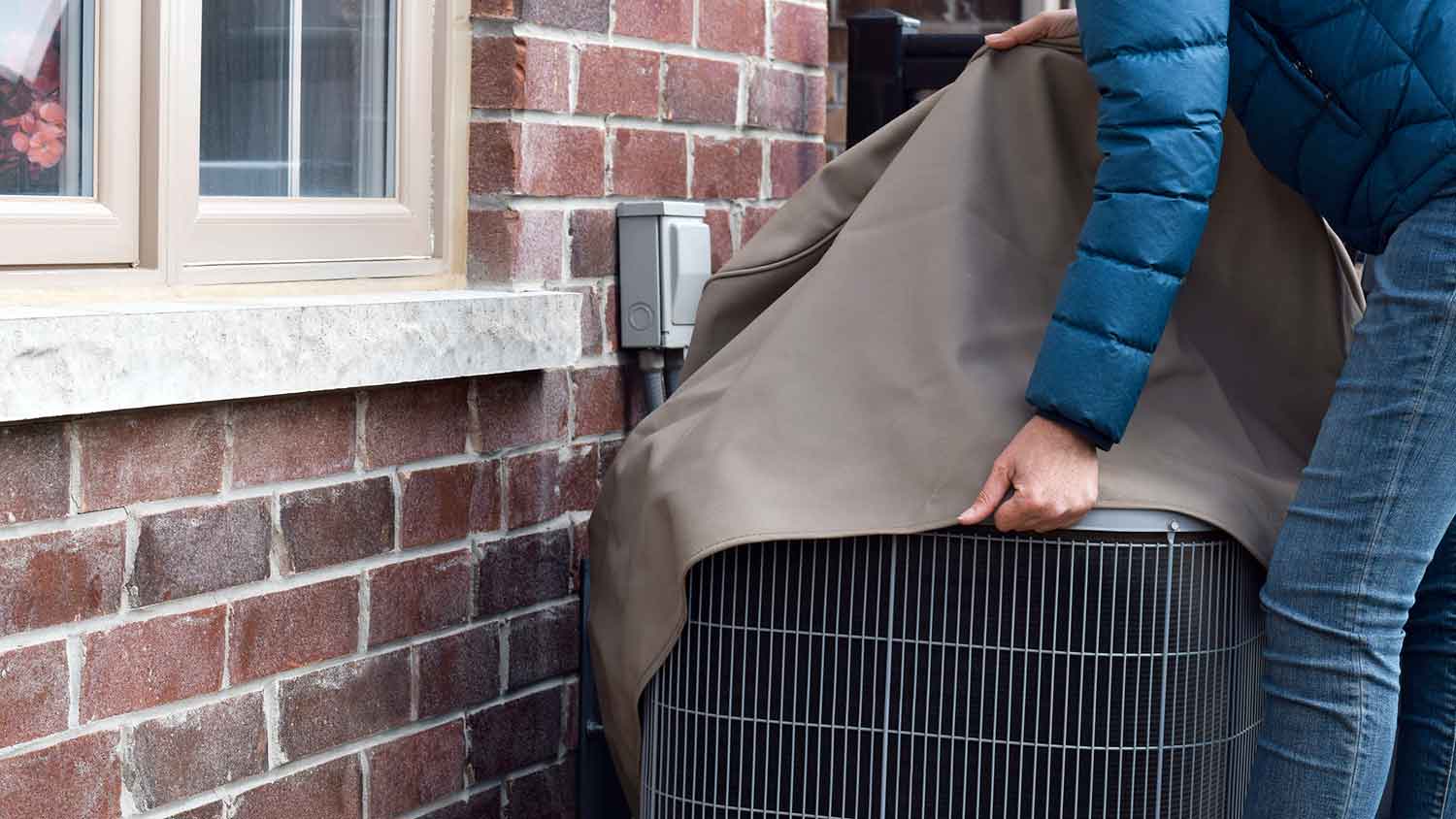
Whole-house humidifier costs vary based on the type and size of the unit, along with other factors. The price might be worth it for people living in dry regions.
Keeping your AC freeze-free is easy breezy


Every fall, there comes a point when you have to retire your air conditioner for the year and fire up the furnace. But before you switch your thermostat from cooling to heating, there are a few things you’ll need to do to keep your outdoor AC unit safe in the winter weather. Below, we’ll walk through how to turn off your air conditioner for the season so that you can avoid unnecessary damage to your HVAC system.
If you don’t plan on using your central air conditioning during winter, why do you need to shut it off? Let’s say you have an unusually warm day in January. If the temperature gets high enough, your AC might automatically turn on. While it runs, the outdoor unit will create water as part of the cooling process. Later, when the weather gets cold again, that water can freeze and potentially damage your AC unit. Shutting down your AC can prevent this from happening.
After summer ends, it’s a good time to make any required repairs and address any big maintenance concerns with a pro. If you don’t resolve these issues before winter, they could get worse. You might not even realize the extent of the problem until you try to use your AC again next year. Call a pro for a seasonal inspection and maintenance before you begin winterizing your AC unit.
Get your HVAC system serviced and inspected at least once per year. For extra peace of mind, call in a pro twice annually: once before the hottest months of the year and again before the coldest time of year.
When you’re done using your air conditioning for the year, it’s time to turn it off for winter. Here’s how.

Start by heading outside and turning off the AC unit’s power switch. In most cases, the switch is mounted on an exterior wall near the unit underneath a cover that flips up.
With the power disconnected, you can begin cleaning your air conditioner. Use a broom to gently brush away any leaves, twigs, and dirt. Then, use a garden hose or a damp cloth to wash off the outside of the cabinet. Make sure not to get the electrical box wet.
You might need a pro’s help to clean interior components of the unit, like the coils. Investing in an HVAC maintenance plan can be a huge help here. These plans often include discounted or completely free preventative services twice per year.
Look around the AC unit for potential problems, including leaks, cracks, and rust. If you spot any of these issues, hire an HVAC technician to diagnose and fix them.

If the pipes running from your AC unit into your home aren’t insulated already, now is the time to cover them with foam tubing. This will help protect them against freezing and bursting when temperatures drop. (You can leave the insulation on year-round.)

When it’s completely dry, consider putting a breathable waterproof cover on your AC unit to protect it from snow, ice, leaves, and other debris. However, this may not be necessary if it doesn’t snow where you live or if there are no trees near your AC unit.
Being proactive about your air conditioner maintenance can keep your AC running smoothly and help you avoid a larger, more expensive problem down the line. One way to do this is by scheduling an air conditioner servicing in early to mid-spring. Ideally, you’d have another one in the fall, too.
You’ll also want to:
Change your filter every month or two to keep your AC running efficiently and save money on utility bills.
Clean your air conditioner thoroughly before summer.
Trim overhanging trees so that branches and twigs don’t fall into your AC unit.
Keep the unit free of snow and ice buildup throughout winter.
Getting your air conditioner ready for winter is quick and simple, with no special tools or supplies needed. You should be able to get through it in under an hour. However, if you’d rather have an expert handle it or you notice damage that needs repair, you can contact a local air conditioner installer. On average, these pros charge between $100 and $250 per service call.
From average costs to expert advice, get all the answers you need to get your job done.

Whole-house humidifier costs vary based on the type and size of the unit, along with other factors. The price might be worth it for people living in dry regions.

The average boiler installation cost depends on size, system type, and other factors. Keep reading to learn the cost of a new boiler.

Furnace cleaning is an essential annual chore to keep your home safe. Find out common furnace cleaning costs by type and size of furnace with this guide.

Is your heat pump not blowing hot air? Several factors could be causing this issue, and we dive into seven of the most common heat pump issues.

Ductwork losing energy? Here are six duct sealing methods that will help you get some big savings on your monthly energy bills.

Energy bills rising? Here’s how to perform a DIY duct leakage test to locate any damage in your ductwork and restore your energy-efficient home.